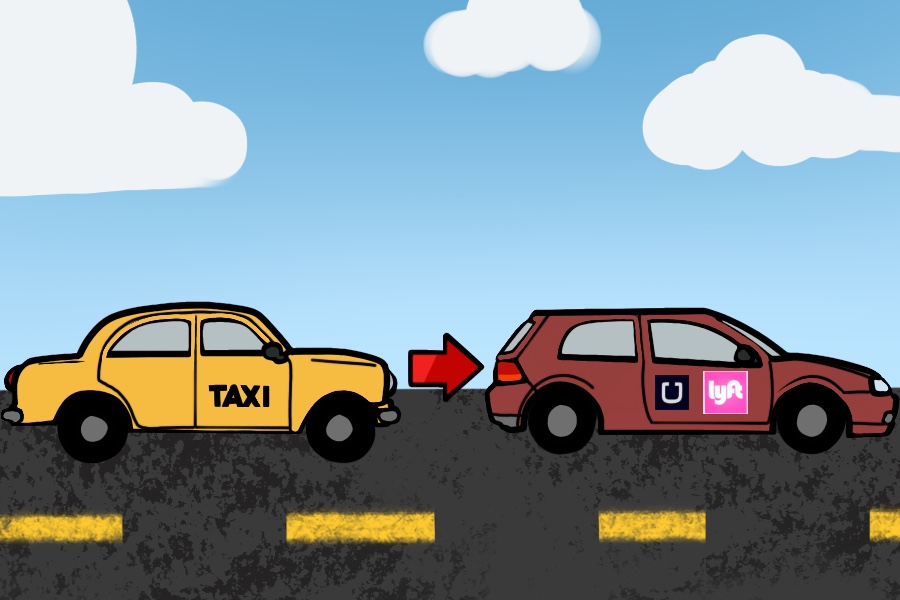
Passage of Senate tax bill has potential to increase profits of sharing economy workers
Follow-up to a December article about the benefits and drawbacks of participating in the sharing economy.
The lures of the gig economy, from flexible scheduling to easily attainable jobs, may become more attractive with tax cuts from the Senate bill that passed on Dec. 19. Already, a quarter of Americans report earning some form of income from digital platforms. According to data from Earnest, about 80 percent of Uber and Lyft drivers make under $500 a month, but new tax provisions could make earning extra money in the gig economy more profitable than ever.
For the most part, gig workers are classified as independent contractors rather than formal employees. This means that, under the new tax law, contracted workers such as Uber and Lyft drivers will be able to deduct 20 percent of their yearly earnings from their taxable income — another incentive for Americans to move away from formal employment.
Companies often favor contractors over employees because they can save up to 30 percent in costs — from payroll taxes to health care provision. The classification of gig workers as independent contractors, however, has been up for debate since the digital job market started exploding in 2009. In 2015, a California court ruled that an Uber driver who had filed a claim against the company was an employee, not an independent contractor. There have also been a number of class action lawsuits against Uber and Lyft in which drivers have tried to argue that they should be classified as employees rather than contractors under the Fair Labor Standards Act. Courts in Florida sided with Uber in 2017 by characterizing employees as independent contractors, while courts in California and Massachusetts have rejected cash settlements that attempted to compensate upset drivers for misclassification.
The issue comes down to whether an employer controls the work of the employee, but defining “control” is subjective. Is Uber “controlling” its employees by setting a pay structure and issuing a code of performance, or is it simply acting as a platform for riders and drivers to connect at their own convenience? Future court rulings will have to set this definition in an ever-growing sharing economy where employment status is hazy.
Debates between companies and workers over employment status may settle down now that gig workers have the ability to save more of their earnings as contractors. Formal employment, though, still offers protections to employees such as healthcare, workers compensation and anti-discrimination protections that contracted working lacks. As mentioned in a previous article, economists such as Janine Wilson of the UC Davis Department of Economics believe that the growth of the sharing economy will bring private insurers to the market, offsetting the absence of a safety net for contractors.
Observations over time will show if new tax provisions will be another incentive to boost the size of the already growing gig economy, but adding increased profitability to a market that already offers schedule flexibility and easy-to-obtain jobs could outweigh the cost of having limited workplace protections as an independent contractor.
Written by: Olivia Rockeman — features@theaggie.org



